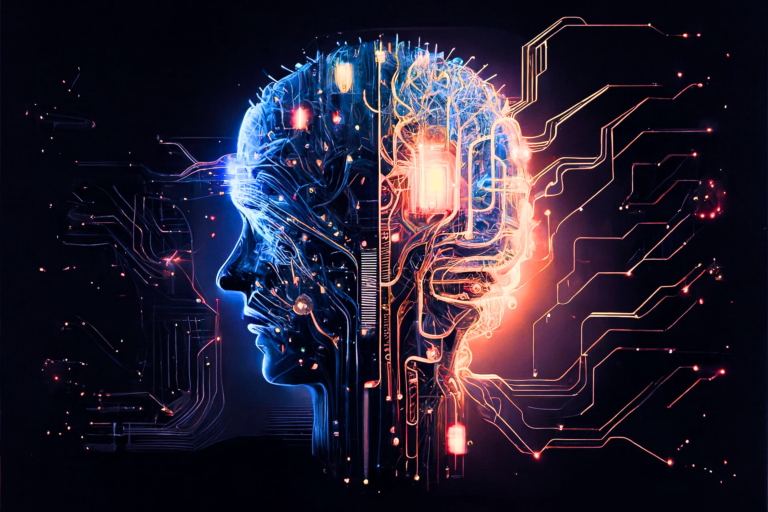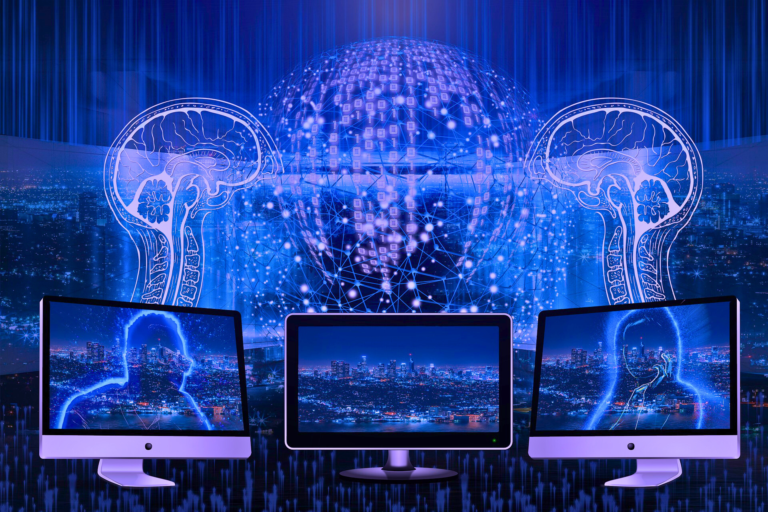Let’s talk about the elephant in the room—well, more like the robot in the office. Artificial Intelligence (AI) has been showing up everywhere lately. It’s in your phone, your car, your fridge, and yes, even in your job. While some people are fascinated by it, others are terrified it’s going to take over their careers. So, what’s really going on with AI and our jobs?
AI is not some evil robot that wakes up in the morning plotting how to steal your paycheck. In fact, it’s more like a super helpful assistant who never sleeps, doesn’t need coffee breaks, and doesn’t complain about Mondays. But, like every helpful assistant who suddenly becomes too good, people start to worry about being replaced.

The truth is, AI is changing the way we work—but not in just one way. Some jobs are going away, yes. But many new jobs are also being created. Think of it like this: back when cars were invented, a lot of horses probably felt threatened too. But now, we’ve got mechanics, Uber drivers, car designers, traffic cops, and of course, people who yell at traffic cops.
In many workplaces, AI helps with boring or repetitive tasks. Imagine sitting in front of a computer all day copying data from one spreadsheet to another. Sound exciting? Didn’t think so. That’s where AI comes in. It can do those tasks in seconds, giving humans more time to focus on creative, strategic, or people-oriented work. And let’s face it, anything that helps us escape spreadsheets is a hero in our books.
However, let’s not ignore the serious side. There are jobs that are being lost because of automation. Factories are using machines instead of humans, customer service bots are answering phones, and self-checkout machines are now asking if you brought your own bag—in a very judgy tone. These changes hit certain industries harder than others. Manufacturing, transportation, and even some parts of healthcare are seeing major transformations.
But here’s the plot twist: AI is also creating jobs. New roles like AI trainers, data analysts, and machine learning engineers are popping up faster than a cat video goes viral. There’s also a rise in jobs that involve understanding human behavior—like digital therapists or online community managers. It turns out robots are still pretty bad at giving emotional support (unless you’re comforted by the words, “I’m sorry, I didn’t understand that. Try again.”).
To stay ahead, we humans need to do what we do best—adapt. Learning new skills is key. No one is saying we all need to become programmers (unless you want to, in which case, go for it, code warrior!). But being open to technology, learning how to use AI tools, and staying curious will make a big difference. Basically, if you can’t beat the bots, at least learn how to boss them around.
Education systems are starting to catch up, slowly but surely. More schools are teaching coding, problem-solving, and even how to work with AI instead of against it. Imagine a future where your child comes home and says, “My AI partner and I just designed a new eco-friendly city in class today.” Wild, right? But also… pretty cool.
One of the big concerns people have is about inequality. As with most tech revolutions, the benefits don’t always get shared fairly. Some people have access to AI tools and training, while others are left behind. That’s a real issue, and it’s something governments and companies need to tackle head-on. Otherwise, we risk creating a world where one half of the population is managing robots, and the other half is trying to unplug the WiFi just to stop them.
So, will AI take your job? Maybe. Maybe not. But it will definitely change your job in some way. And that’s not necessarily a bad thing. Imagine having more time to be creative, solve problems, or finally figure out how Excel actually works. AI can help with that too—just don’t ask it to explain pivot tables without signing a waiver.
In the end, the relationship between AI and employment is like any new relationship—it has its awkward moments, its exciting potential, and its fair share of “What the heck is going on?” But with the right mindset, a little humor, and maybe a few updates to your resume, we can all figure it out together.
And hey, if all else fails, you can always become an AI comedian. Just imagine the punchlines: “So, a human walks into a job interview…”





